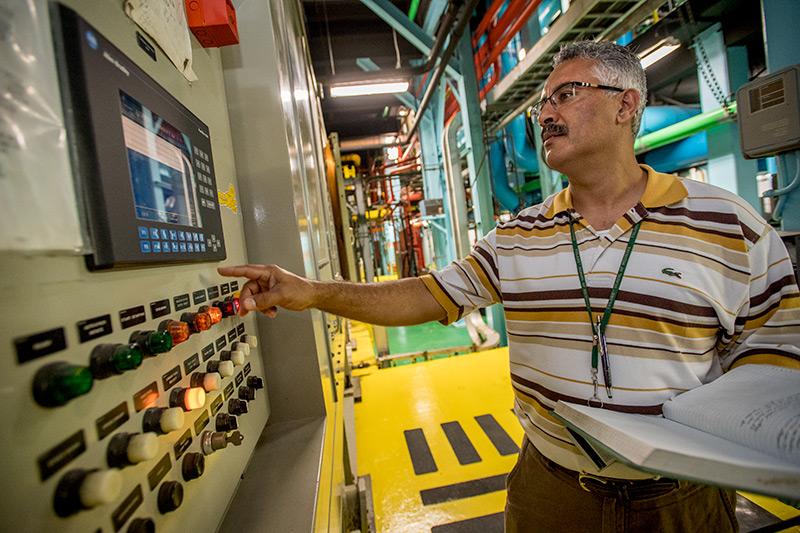Tulane considers safety first during bad weather
The decision to cancel classes because of a weather event like Harvey is a complex one. Just ask Norris Yarbrough, assistant vice president for emergency preparedness and response at Tulane.
Yarbrough is in charge of gathering all the “intel” about storms to make a recommendation to the Tulane President’s Cabinet, composed of the university’s administrative and academic leaders, on whether the various Tulane campuses should close or not.
While the heavy rainfall predicted for New Orleans for Tuesday (Aug. 29)—which happened to coincide with the 12th anniversary of the cataclysmic Hurricane Katrina—did not materialize, Yarbrough said, “If we’re going to err, if we’re going to make a mistake, we’re going to make it on the side of caution.”
“If we’re going to err, if we’re going to make a mistake, we’re going to make it on the side of caution.”
Norris Yarbrough, assistant vice president for emergency preparedness and response
The life-safety of students, faculty and staff is the No. 1 factor in making the decision to close a campus, said Yarbrough. It was a clear-cut choice to close Tulane’s Houston campus last Friday when major flooding threatened.
And when New Orleans Mayor Mitch Landrieu urged all citizens to “stay off the streets” late Monday afternoon, Tulane fell in line.
“We have kept our employees and our students completely safe and not asked them to travel when it might be perilous,” Yarbrough said.
Even without classes in session, essential services for students were still available—and essential personnel did make their way to work.
The Tulane University Police Department, food services, facilities services, Housing and Residence Life, libraries and the Reily Student Recreation Center were all in operation.
Yarbrough’s emergency preparedness and response team was, of course, hard at work, too. “We are kind of the ringmaster,” he said, “coordinating all the band players. We determine what would be nice to have open for students and is it safe to do it.”

